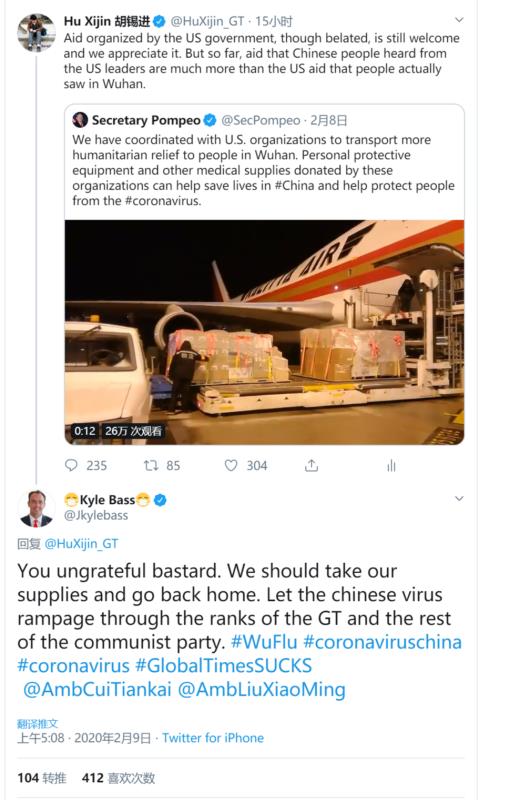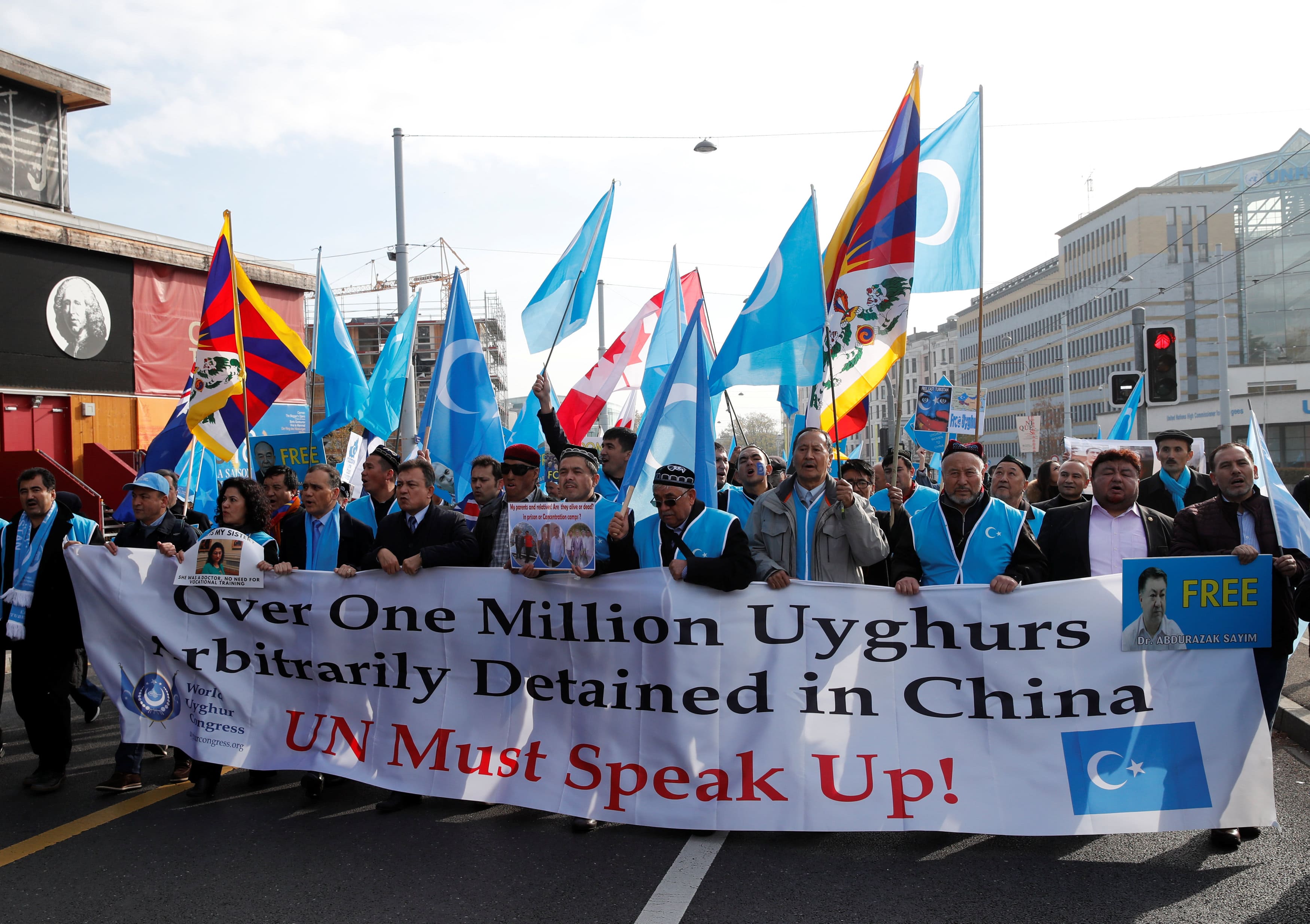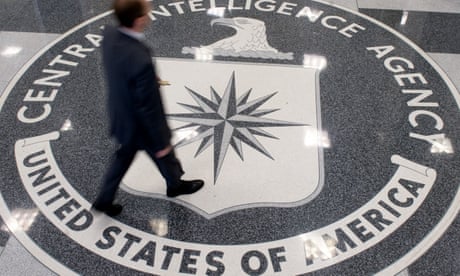Bass says U.S. should let the Chinese virus rampage through the ranks of the Global Times and the rest of the communist party
By Hannah Levitt
By Hannah Levitt
 Kyle Bass
Kyle Bass
Kyle Bass took his long-time battle with communist China up another notch by getting into a heated spat with the editor-in-chief of a Communist Party-backed newspaper.
The hedge fund manager suggested on Twitter that the U.S. abandon efforts to help contain the coronavirus and let it spread through China’s leadership.
“We should take our supplies and go back home. Let the chinese virus rampage through the ranks of the Global Times and the rest of the communist party,” the founder and chief investment officer of Dallas-based Hayman Capital Management wrote.
He was responding to a tweet from Hu Xijin, editor-in-chief of the Global Times, a daily run by the Chinese Communist Party’s People’s Daily, in which he complained about “belated” U.S. aid.

Hu Xijin 胡锡进
✔@HuXijin_GT
.@Jkylebass As an investor with 129K twitter followers, you uttered such a malicious curse. You should apologize.

566
1:47 PM - Feb 9, 2020
The hedge fund manager suggested on Twitter that the U.S. abandon efforts to help contain the coronavirus and let it spread through China’s leadership.
“We should take our supplies and go back home. Let the chinese virus rampage through the ranks of the Global Times and the rest of the communist party,” the founder and chief investment officer of Dallas-based Hayman Capital Management wrote.
He was responding to a tweet from Hu Xijin, editor-in-chief of the Global Times, a daily run by the Chinese Communist Party’s People’s Daily, in which he complained about “belated” U.S. aid.

Hu Xijin 胡锡进
✔@HuXijin_GT
.@Jkylebass As an investor with 129K twitter followers, you uttered such a malicious curse. You should apologize.

566
1:47 PM - Feb 9, 2020
Bass later deleted the tweet but doubled down when Hu suggested he apologize.
“I will not,” Bass replied.
“You arrested, censured, and ‘punished’ (only God knows what you did to Li Wenliang and the other 7 doctors) the heroes of Wuhan. You are disgrace to humanity.”
In an emailed statement to Bloomberg News addressing his spat with Hu, he said he deleted the tweet because he “felt that it was too harsh for the rank and file” of the Global Times, but that he will “never apologize to a self-righteous, attempted manipulator of public opinion,” referring to Hu.
Bass has long been a vocal critic of China’s predatory policies -- he forecast last month that Hong Kong will suffer a “full-fledged banking crisis” this year and said it’s unlikely that Beijing will adhere to a trade deal with the U.S.
The coronavirus disease surfaced in late December in Wuhan, China.
In an emailed statement to Bloomberg News addressing his spat with Hu, he said he deleted the tweet because he “felt that it was too harsh for the rank and file” of the Global Times, but that he will “never apologize to a self-righteous, attempted manipulator of public opinion,” referring to Hu.
Bass has long been a vocal critic of China’s predatory policies -- he forecast last month that Hong Kong will suffer a “full-fledged banking crisis” this year and said it’s unlikely that Beijing will adhere to a trade deal with the U.S.
The coronavirus disease surfaced in late December in Wuhan, China.
The ensuing global outbreak has infected tens of thousands of people and killed more than 900.




